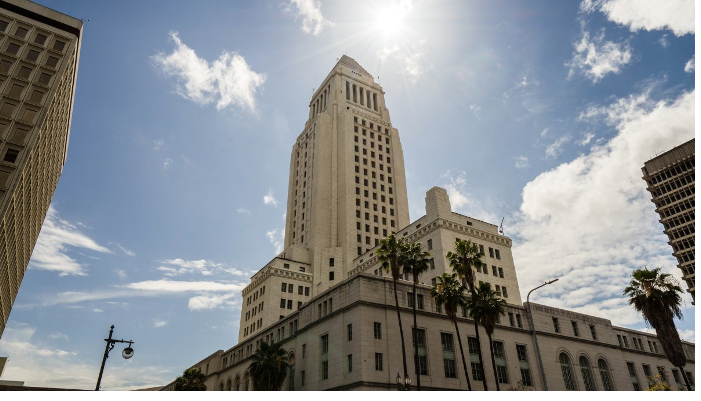CommentsGUEST COMMENTARY - Last Saturday a working group to operate within the Neighborhood Councils system to address issues of concern was formalized at the monthly meeting of the Los Angeles Neighborhood Council Coalition (LANCC), an alliance of Neighborhood Councils (NCs) across the City.
Its mission:
The Working Group for Constructive Change in the Neighborhood Council system (WG4CC) shall be a force for freedom of speech and full transparency ensuring true empowerment of Neighborhood Councils and their independence.
To that end, WG4CC is a city-wide steering group under the auspices of LANCC to identify areas of concern within the system which impact Neighborhood Councils, their board members and stakeholders, and present them at LANCC to enable the Neighborhood Council system to reach its fullest potential.
Although there have always been complaints and, at times, praise for the Department of Neighborhood Empowerment (DONE) which was established to support our City’s grand experiment in hyperlocal democracy, there has never been a peer-appointed group tasked with investigating and making recommendations about the day-to-day quibbles and criticisms of the 20-year-old system.
The formation of the WG4CC comes at a time when there are increasing complaints about many specific issues as well as attempts to better codify conduct in the wake of escalating incidences of disruptive and offensive behavior, with the rise of social media and especially in the wake of the pandemic.
Key issues are the existing grievance procedure and proposed revisions to it, as well as the increased burden of trainings required of both elected board members, and stakeholders interested in volunteering on certain committees, which are at times tedious, time-consuming and lack relevance to many NC board members’ concerns.
In recent months, other complaints have arisen around attempts to revise the NC Code of Conduct, and establish a Media Policy, both of which are necessary but have been called out by some as not only as being far in excess of what is needed, but also posing risks to people’s due process and freedom of speech.
Which is why LANCC also passed two motions brought forward by the WG4CC:
Every NC board member, officer, volunteer and vendor is entitled to the full rights of due process upon being accused of anything by the city authorities, including the right to be notified in writing of all accusations, the right to representation, the right to call witnesses and obtain documentary evidence, and the right to confront one's accusers. No action shall be taken against any such person prior to being afforded these rights provided, however, that invoking due process shall not be used as a delaying tactic.
And:
The City of Los Angeles through its officials, agencies, and commissions (DONE, BONC, the mayor, and the City Clerk, among others) shall expedite negotiations with a committee appointed by and representing NC interests and concerns to determine what mandatory trainings are appropriate and necessary for board members and stakeholders, and to help improve the process, and work to implement such in an expedited manner.
Following which people representing a number of different communities across the City volunteered to form a committee to discuss how to make existing trainings relevant to the NC system, how to relieve the burden of hours of extraneous material, and to make recommendations about what people would like to learn about to facilitate their work as concerned board members elected to provide a service to all Angelenos.
To put the NC system in context, it was created in the wake of wide-spread dissatisfaction with a City government notorious for corruption and cronyism.
In 1990 the City’s Ethics Commission was established. But even with some of the more egregious ethical issues being addressed, there were still rising complaints about lack of services in many neighborhoods and the tone-deaf approach an elitist City Hall took in favoring certain communities’ interests over others.
With the valley threatening to secede from Los Angeles and protests that the interests of people of color were not being addressed, a system of volunteer governance was written into the revision of the City Charter that came into effect in July of 2000.
It’s a massive job to create a democratic overlay from scratch. DONE and the Board of Neighborhood Empowerment (BONC) which was set up to shepherd the formation of individual councils were kept very busy in the initial years. Over time as DONE and the system matured, things changed from a fluid bottom-up collective to more of a top-down bureaucracy as seen in other City departments.
Now many people within the NC system are calling for increased independence, more involvement in the decision-making process, and a shifting of focus of DONE and BONC to ensure full transparency in their actions, most notably to entrench due process and encourage freedom of speech.
Stay tuned for future updates.
(Liz Amsden is an activist from Northeast Los Angeles with opinions on much of what goes on in our lives. She has written extensively on the City's budget and services as well as her many other interests and passions. In her real life she works on budgets for film and television where fiction can rarely be as strange as the truth of living in today's world.)






